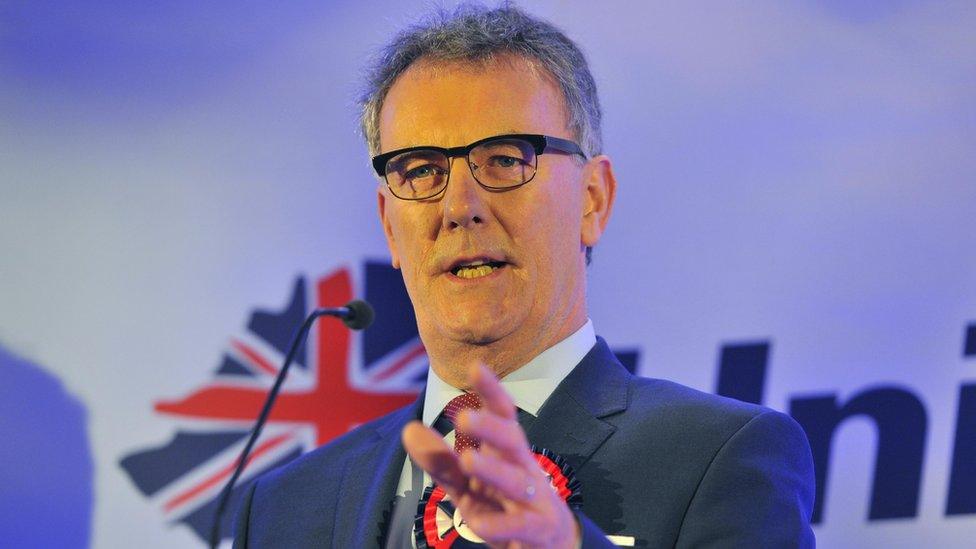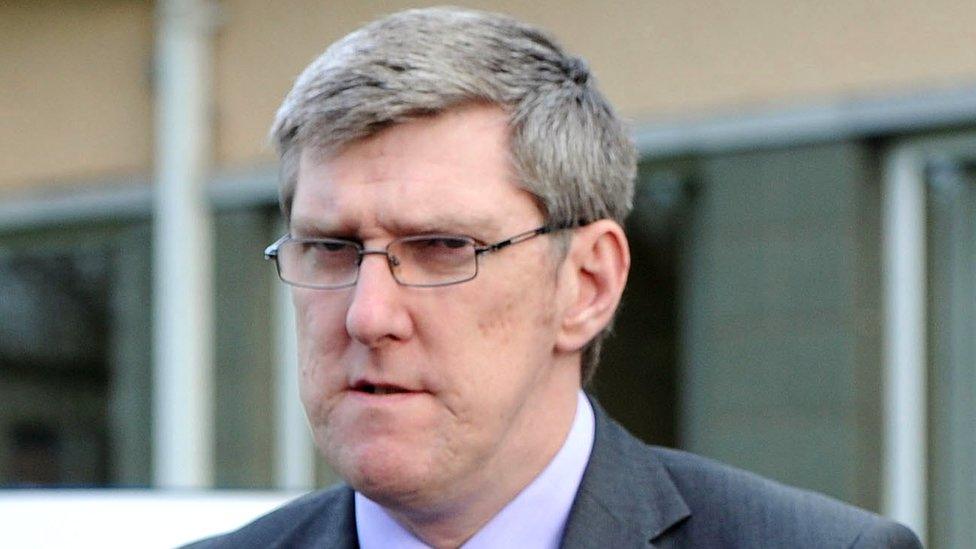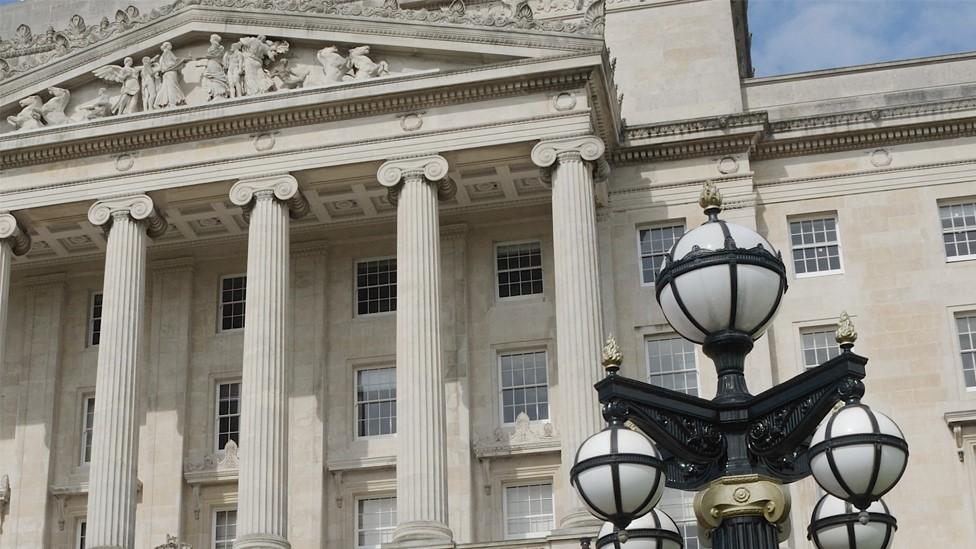NI Assembly election: Education emerges as key issue
- Published

UUP leader Mike Nesbitt said if his party returns to the power sharing executive they want to take the education department
I sat down to write a blog about how education had become a theme during the second full week of the Stormont campaign.
But instead another E word kept coming into my head - Europe. Nothing to do with the June Brexit referendum, but one of those bizarre encounters you sometimes have on the election trail.
As I was trailing Arlene Foster through the foyer of the Belfast Titanic Centre, she stopped to chat to a group of German tourists over for a fishing holiday.
After a few pleasantries, one of the visitors revealed himself to be West Germany's entrant for the 1987 Eurovision Song contest.
That year Ireland's Johnny Logan won with "Hold Me Now".
But the singer from the improbably named group Wind obviously didn't bear a grudge as he told the first minister how much he loves travelling to Northern Ireland.
She in-turn revealed herself to be a Eurovision junkie, reminding me (in order to preserve her pro-Brexit credentials) that the song contest is not just for EU countries and even giving me a few bars of Johnny Logan's "What's Another Year?"
Sunshine and wind
The DUP leader vowed to go off and search for the West German 1987 entry "Let the Sunshine Into Your Heart", but let's save her and you the effort, external.
After that brief lesson in European musical history, let's return to education in a more traditional sense.
It was Mrs Foster herself who put it on the election map by hinting in last week's UTV debate that the DUP might - for a change - not pick the finance department first.
Instead she indicated her party could listen to those urging them to take the education portfolio. However, this fell short of any solid undertaking.
Then the Ulster Unionists used their manifesto to say that - if they return to the power sharing executive - they want to take education.
The UUP also proposed an alternative to the two privatised transfer tests which primary school children currently have to sit if they want to go to a grammar school.
Instead, the party wants primary school teachers to preside over a system of continual assessment which would replace the exams whilst preserving an element of academic selection.

Sinn Féin's John O'Dowd said he did not think the UUP's proposal of assessment for primary school pupils was workable
On Inside Politics, the outgoing Education Minister John O'Dowd spelled out why he doesn't believe the UUP assessment idea is workable. UUP leader Mike Nesbitt was subjected to further questioning on whether the teachers' unions would back continual assessment of primary school pupils on BBC Radio Ulster's Nolan Show.
Over the weekend, a survey by the polling firm Lucid Talk, external suggested education is top of voters' list of election priorities.
On the BBC's Sunday Politics, Dolores Kelly talked about the SDLP's backing for integrated education. The SDLP manifesto criticised both the DUP and Sinn Fein, arguing their shared school campus initiative didn't go far enough.
Alliance, which wants to see 20% of children in Northern Ireland in integrated schools by 2020, will no doubt have more to say on this score in their manifesto, due to be launched this week.
All the parties can say what they like about education, but will any of them be in a position to deliver change? If the DUP is the largest party then they can choose whichever department they want.
However, much of the discussion about education stems from the cut in number of the Stormont departments, and the creation of a new single economy department merging enterprise with employment and learning (the latter department currently has responsibility for universities and colleges).
This has led to speculation that Sinn Féin might be tempted to take the new single Economy Department, rather than Education. However if John O'Dowd knows Sinn Féin's thinking on this score he wasn't giving anything away on Inside Politics, despite persistent attempts to get him to divulge all.
- Published13 April 2016

- Published13 April 2016
